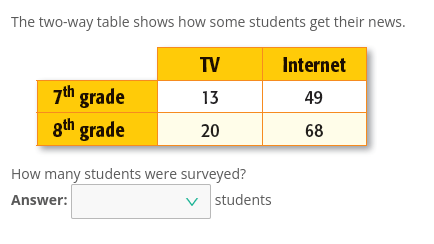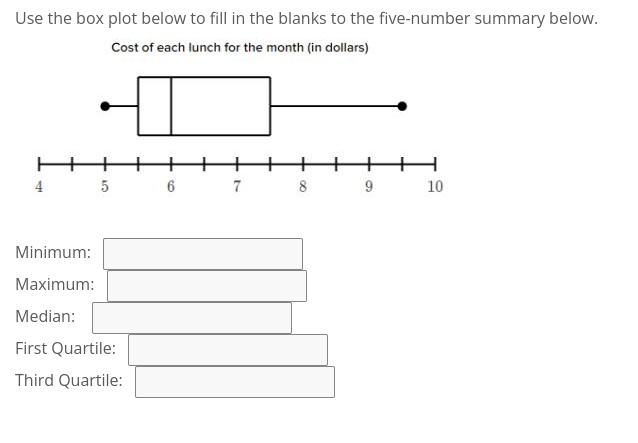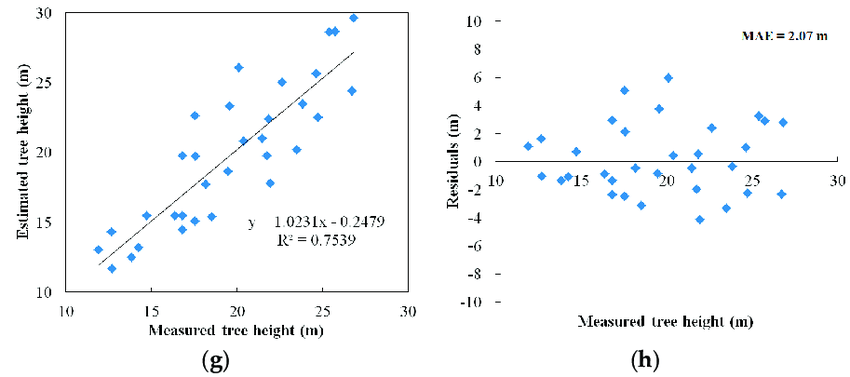This term refers to
Scatter Plot

150
Does correlation imply causation?
No, correlation does not imply causation.
How do we find a deviation (not the standard deviation) from the mean?
Number - mean = deviation

Minimum: 5
Maximum: 9.5
Median: 6
1st Quartile: 5.5
3rd Quartile 7.5
This graph displays the residual values on the y-axis and fitted values, or another variable, on the x-axis. After you fit a regression model, you can use this to see how linear the relationship truly is.
Residual plot
What percent of girls chose B?
12.5%
The correlation coefficient will be between...
-1 and 1
Why do we square the deviations to find a standard deviation?
If we added up the deviations, they would equal 0.
Find the regression line (least squared line) of this set of data.
x: 12, 14, 17, 19, 21, 30, 35
y: 300, 250, 360, 390, 741, 500, 600
y=13.54x+ 162.36
What can we learn from a scatter plot?
(3 answers, you only need one)
direction (upward, downward), strength, and form (linear, exponential, quadratic)
What percent of participants were girls?

40%
How can we find the correlation coefficient?
Using a calculator designed for that purpose.
If there are 7 numbers in a set, what would we divide the sum of the squares of the deviations by?
6
(7-1)
If a computer stat output would give this regression line equation: y(hat) = 19.5 + .563x, with the highest residual being 3 and the lowest being -2, what would be the expected range for value when x = 12.
24.26 - 29.26
26.26 is the expected result. Subtract the lowest residual to get the low end of the range. Add the highest residual to get the high end.
How do you measure a residual?
Observed value - Expected Value = Residual
How many students were boys who chose D?
20
Find the correlation coefficient.
x: 12, 14, 17, 19, 21, 30, 35
y: 300, 250, 360, 390, 741, 500, 600
0.6526
What does standard deviation tell us that the mean doesn't?
How far we can expect the actual numbers to be from the mean. A smaller standard deviation means that the numbers are closer to the mean (not spread out).
How would you describe this relationship?

What percent of students were girls who chose drink A?

12.5%
How would you describe (positive/negative, strong/weak) a correlation coefficient of 0.98?
Positive, strong
Find the standard deviation of this group of numbers
50, 69, 70, 75, 75, 90, 85, 80, 70, 60, 100, 95, 90, 80, 85, 50
14.7